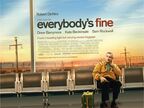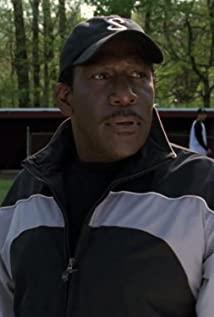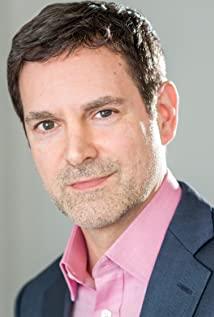I thought this movie would be a continuation of this public service advertisement, the main purpose of which is to blame children for not caring about their parents, failing to perform filial piety, and leaving the elderly alone and lonely. Apparently, I seem to have forgotten about cultural differences.
When visiting David and Amy, what I felt was the emotional neglect of the elderly by the children - David was not at home, the elderly sat at the door of the apartment late at night and was mocked by passing prostitutes... In the end, the elderly could only spend the night in the bar And on the second day, I stuffed a letter in the crack of the door that was still empty. It was a pity... At Amy's house, the grandson's attitude made the old man feel that his existence was unnecessary... I felt like playing golf with the grandson in general. , Grandpa's smile is so unnatural, grandson doesn't notice it... The grandson's smile on the old man's clumsy use of chopsticks at the dinner table also makes people feel distressed, why not eat a dish that won't make the old man feel stupid and stupid? ...
When I got to Robert's rehearsal room, I was making a loud noise for the old man just now, which made people look at him awkwardly. I felt that the main theme of the movie has been added here- (The father may still have a better conversation with his son. , directly implying that the son is not as good as he thinks) Robert said what he had been holding back in his heart - the father was asking too much. When it comes to Rosie, it's even more straightforward - David is the one who doesn't want to let you down.
It seems that both fathers and children do something wrong: the children do not try their best to spend time with their father, even though they may really want to; the father expects too much from his children when they are young, and the children are under a lot of pressure (I don’t know if David’s death is I'm not indirectly criticizing the father's actions), which also leads to a estrangement between the children and the father, and they do not speak their hearts to the father.
I always feel that it is the most heart-wrenching, but also the most gratifying, for the children to tell their father the news of David's death truthfully - No more lies. The children and their fathers can finally confess, and finally they can chat sincerely without making up beautiful lies. Although David is dead, he is dead, at least those who are alive, we know that at the moment after that confession, everyone will be fine.
The ending is gratifying - the children no longer take time off from the Christmas family gathering, and the whole family happily prepares the New Year's Eve dinner. Such a picture, coupled with the sentence "Everybody's fine" at the end, seems to be tacitly expounding: the children do their best to spend time with the lonely old father, and no longer make up lies that will not hurt the father but make the father more sad; the father also Knowing that you should no longer be demanding of your children's achievements, but should listen to your children's voices carefully - a happy ending that is balanced, balanced, and harmonious.
Ps. Virgin review.
View more about Everybody's Fine reviews











